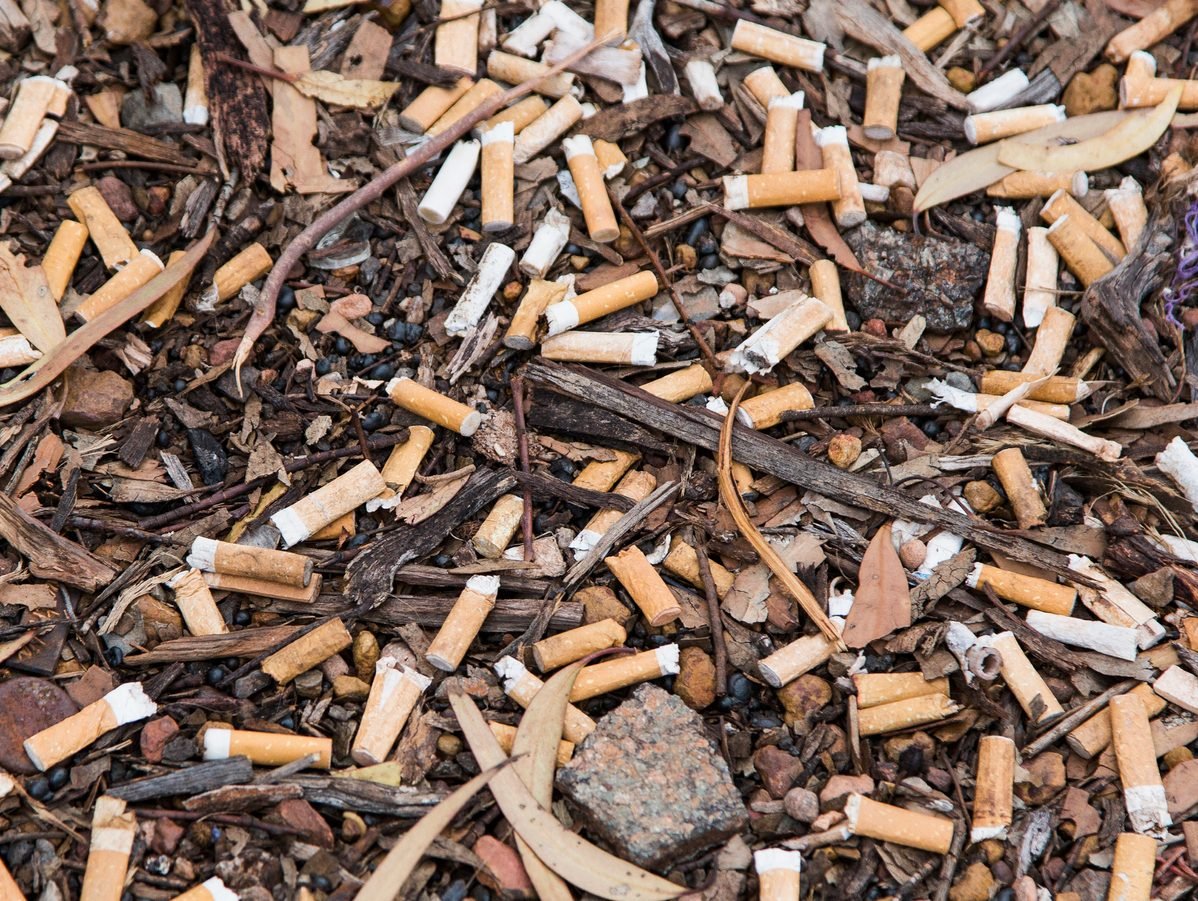- Cigarette butts left in grass and soil can harm nearby plant growth, according to a new study.
- The study found that a cigarette butt can cut down the germination, or development, of plants, adding to concerns about discarded cigarette remnants as an under-acknowledged, but widespread, pollutant.
- A common ingredient in cigarette filters makes them among the most common man-made contaminants that affect the ground where they are discarded whether they were smoked or not.
- Visit Business Insider’s homepage for more stories.
Cigarette butts left in grass and soil can harm nearby plant growth, according to a new study.
The study led by Anglia Ruskin University in Cambridge, England found that a cigarette butt can cut down the germination, or development, of plants, adding to concerns about discarded cigarette remnants as an under-acknowledged, but widespread, pollutant.
Cigarette butts cut down the germination success of grass by 10% and clover by 27%, and the shoot length by 13% and 28%, respectively, according to the study, which was published in the journal Ecotoxicology and Environmental Safety.
Though plastic straws have dominated conversations for those looking to cut down on pollutants, cigarette butts are the most pervasive man-made contaminant.
The BBC reports that the study says an estimated 4.5 trillion butts are littered globally each year. Though it's difficult to determine the amount of discarded cigarettes, estimates come from the 5.6 trillion cigarettes that are manufactured worldwide each year, most of which are "dumped irresponsibly," according to NBC News.
The common ingredient in filters that spells danger for the environment comes in the form of cellulose acetate, a kind of plastic that takes at least a decade to decompose. /p>
Researchers reportedly took samples within the city of Cambridge, including some locations that had as many as 128 discarded cigarette butts per square meter. The study reportedly found no difference between harm caused by smoked cigarettes and unsmoked cigarettes.
Due to the cigarette's inherent harm to the environment that is in addition to any smoke it gives off, some environmental activists have pushed for cigarette filters to be banned all together.
Since the filters on cigarettes don't provide any health benefit and act exclusively as a "marketing tool," they should be banned to cut down on harm to the environment, Thomas Novotny, a professor of public health at San Diego State University told NBC News in 2018 about the push.
However, a proposal for such a ban failed after being introduced by a California assemblyman and increasingly strict laws on cigarette littering have struggled to make a mark on pollution in recent years.











